Hikers know that whatever the season, their next hike can be a real adventure! Even as the days are getting longer and the weather warmer, night hiking becomes just as popular. This is where a good source of extra light becomes another tag-along necessity. In this  article, I’ll explore what the best hiking flashlight will be for your next adventure.
article, I’ll explore what the best hiking flashlight will be for your next adventure.
Preparing For The Unexpected
It goes almost without saying that all the preparations you can make, may not include elements of unintended surprise! A simple slip on an unfamiliar path; an unexpected burst of bad weather; a wrong turn without an updated trail map…can all lead to a day hike, that MIGHT turn to night, unexpectedly. This is where an extra source of dependable light becomes a life saver!
Your Personal Lighting Needs
Here is where you need to decide what type of flashlight might be more useful to you. This depends on the conditions you think you might run into, or those that you’re already familiar with.
When I say “type of light” I’m referring to both battery configuration and the type of LED the light has. You can read about the various types of LED’s here. Some hikers don’t like taking anything to chance and will pack two flashlights…just in case. If you do this, it’s recommended that they both operate on the same battery type.
One of the features I highly recommend having on a hiking flashlight, is emergency signaling. This comes in the form of either SOS or ‘beacon’. Some lights features both, and just about all of the recommendations below will have one form of it or another.
Batteries: Your light can operate on ANY of these battery types;
- AA alkaline 1.5 volt (single or double)
- AA rechargeable 1.2 volt (NiMH) aka; Eneloop
- AA lithium primary 1.5 volt (disposable)
- 14500 lithium (AA size) rechargeable 3.7 volt
- CR123 lithium primary 3.0 volt (disposable)
- RCR123 (16340) lithium 3.7 volt (rechargeable)
- 18350 lithium 3.7v (rechargeable)
- 18650 lithium 3.7 volt (rechargeable)
- 21700 lithium 3.7v (rechargeable)
- 26650 lithium 3.7v (rechargeable)
Your decision about which batteries to use depends on a few things.
- Is weight a factor in your backpack?
If so, lithium batteries (primary and rechargeable) weigh less than alkaline and NiMH.
- Will you have access to AC power?
If so, rechargeable batteries can be charged up as needed. If not, you can certainly take a portable power bank. But taking a few extras is recommended.
- Do you want to take the brightest flashlight available?
Only lights that operate on lithium batteries are capable of producing light that will scare the pants off someone or something in excess of 200 feet away! In contrast, the very brightest 2-AA flashlight on the market can only deliver up to 500 lumens. The majority are between 200 & 300. A single AA light will max out close to 200 lumens.
Read here on the dangers of buying no-name flashlights which usually have exaggerated specifications.
- How far do you need to see?
Different types of LED’s have different beam patterns. They can produce light that either floods the area with a wide beam and short distance, or more of a focused beam, which can reach distances up to 300 meters and beyond!
Although LED’s have different naming references; such as XM-L, XP-L, XHP50, XHP70, etc… there are a couple of ways to tell just by looking down the center of the bezel, if the light beam will be floody or more concentrated.
If the reflector beneath the lens looks more textured, this is called “orange peel”. That signifies a more uniform beam. If the reflector is completely smooth, and the LED set a little further down…the beam will be very focused, and have long “throw” potential.
- Does size matter?
The average 2-AA light is 6 (or more) inches long. The average light using 2-CR123 batteries (or 1-18650) is about 4 to 5 inches long and 1½” thick. There are single cell-CR123 (16340) lights that are only 3″ long, but just as powerful as larger lights!
21700 lithium batteries are thicker than a 18650, and can hold a tremendous amount of energy…typically 5000mAh. A 21700-based flashlight will be thicker than the average light, and sometimes a bit longer than a single 18650 light.
Whatever the light size, they’re sure to snuggle comfortably in a corner of your pack, or clip nicely to your pocket or the inside of a jacket.
- Going swimming?
Most flashlights are waterproof to IPX-8 standards. This usually indicates they’re submersible in depths of water up to 2 meters!
Recommendations
Okay, now that we’ve established what sort of light might qualify as your best hiking flashlight, let’s get down to the makes and models that hikers have voiced approvals for! Arranged by battery type.
Please note some links are not pointing to the EXACT product mentioned, as availabilities have changed. Instead, they display all current models available of the brand represented.
-
1 x AA
Nitecore EA11. Uses an XM-L2 U2 LED. Features SOS & beacon mode along with a “red” LED signaling beacon. Up to 900 lumens when using a lithium 14500 battery. Has the same features as their EC11 & EC21.
JetBeam Jet 1 MK. Uses an XP-G2 LED. It will run on either a single AA, NiMH (rechargeable) or 14500 (rechargeable) lithium battery. Please note: Its advertised 480 lumens are only accomplished with a lithium battery.
JetBeam E10R. Has an XP-L HI LED with up to 650 lumens. A 3.7v 14500 battery is required to achieve full output.
-
2 x AA
Nitecore MT2A. Uses an XP-G2 R5 LED for up to 345 lumens. Includes SOS.
-
1 x CR123/16340 or 18350
Nitecore EC11. Uses an XM-L2 U2 for 900 lumens. With SOS. Voltage/battery strength indicator. Red location/signalling light. Super small – only 3″ long!
Astrolux S42. Uses an 18350 battery, and features FOUR XP-G3 LED’s. It can achieve up to 2000 lumens!
FiTorch ER16. Using either 1 – 16340 or 18350 battery, this tiny light can reach up to 1000 lumens! It’s also USB rechargeable.
-
1 x 18650/21700
Jetbeam Jet 3M Pro. Uses an XP-L LED for over 1000 lumens! Features strobe and an exclusive user-defined mode. CR123 batteries included! Waterproof.
Olight Warrior 3. With a cool white LED, and 2300 lumens. 21700 battery. USB rechargeable.
Nitecore MH20GT. Using an XP-L HI V3 LED, this light can output up to 1000 lumens. It’s also USB rechargeable, and features a “pulsing” night-light. Exquisite flashlight!
Klarus XT-11S. With an XP-L HI V3 LED, it can output up to 1100 lumens and throws its beam over 300 meters! It’s USB rechargeable, and has 3 separate programmable switches. One can be used exclusively for strobe mode!
-
1 x 26650
Wuben T70. With an XHP70.2 LED and up to 4200 lumens!! An exceptional flashlight!! No pocket clip.
The End Result
These are just a sample of the types of flashlights that other hikers have found effective on the trail. Your experiences may vary. The variety of LED lights has exploded in recent years so it would be impossible to provide a larger list. Since the list includes lights from all battery configurations, this is a great start! Just know that whichever one you choose, will provide lasting quality and reliability.
What did you think about this article? If you’re an avid hiker, do you have a favorite light that’s not represented here? If you already have one of the listed lights, let me know how it’s been working for you. Please leave a comment or question below 🙂





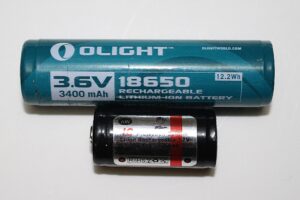
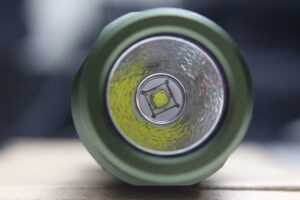
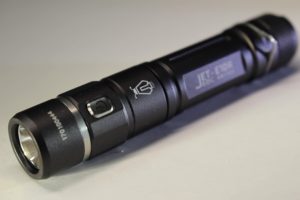
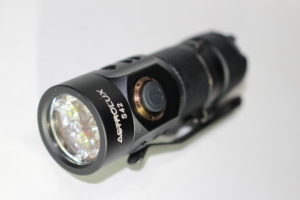
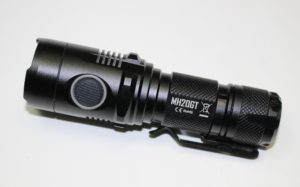
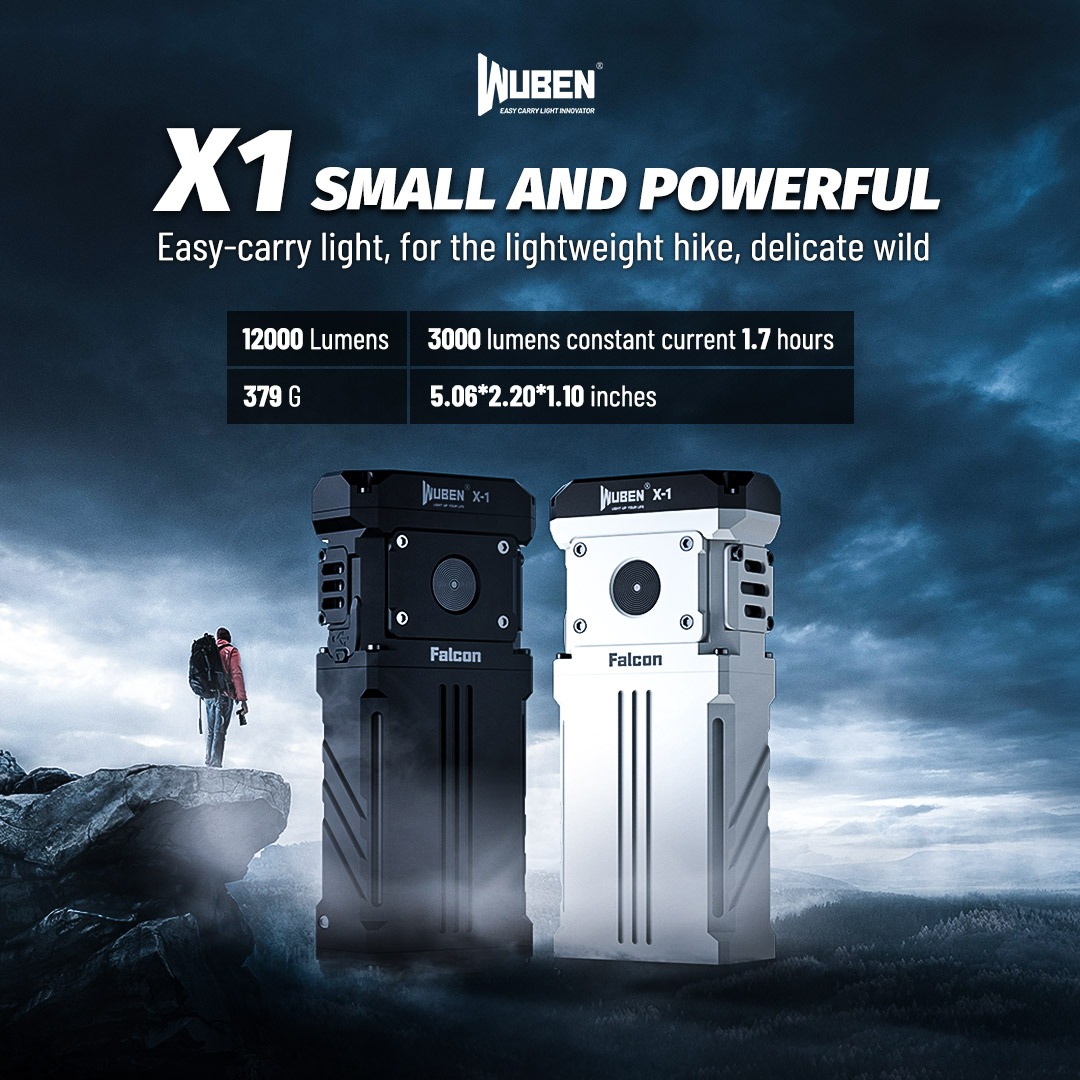
These flashlights are bad _ss! I really could have used one of these on at least one or two hiking trips. All I had was an old school maglite. It was big and heavy, and worst of all, it was not that bright. I haven’t been doing much outdoor stuff lately. But seeing these flashlights makes me want to get back out there! Thanks for the article. Very informative.
Thanks Brad! A good flashlight is worth its weight in gold to the average hiker. Maglights can’t hold a candle to what some of the other makers are churning out these days.